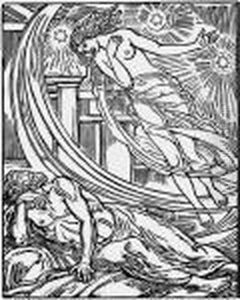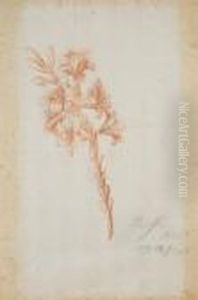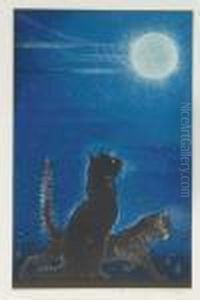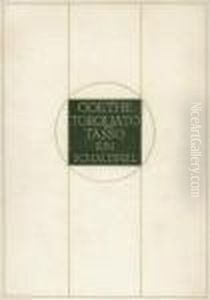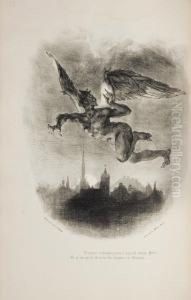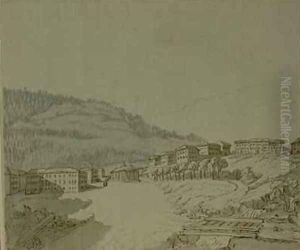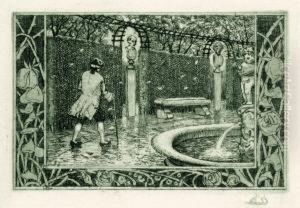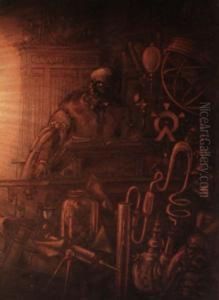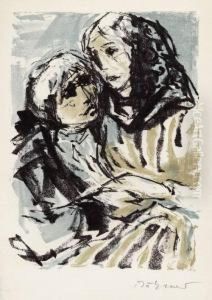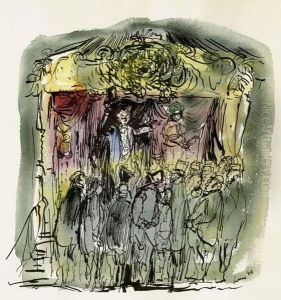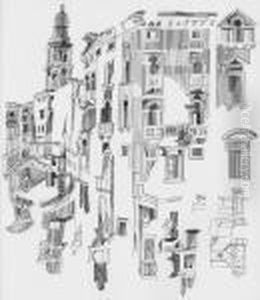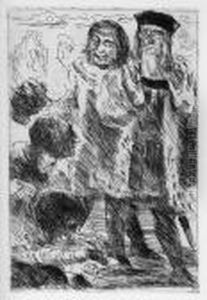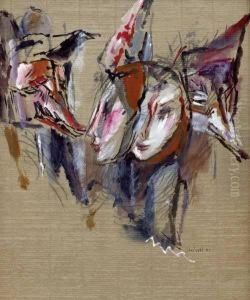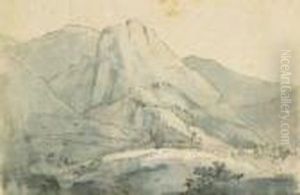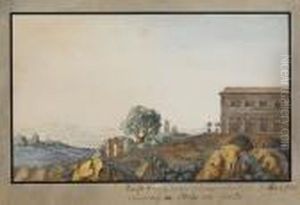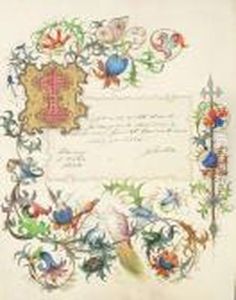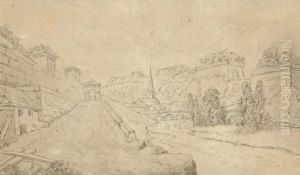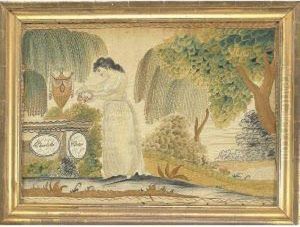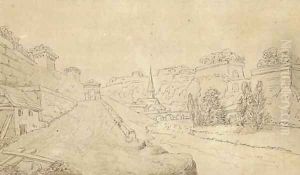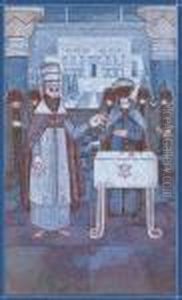Johann Wolfgang von Goethe Paintings
Johann Wolfgang von Goethe was a German writer, pictorial artist, biologist, theoretical physicist, and polymath. He is considered the greatest German literary figure of the modern era. Goethe was born on August 28, 1749, in Frankfurt am Main, in the Holy Roman Empire. He came from a well-to-do family, and his early education was comprehensive, instilling a love for literature, music, and drawing.
Goethe studied law at the University of Leipzig from 1765 to 1768. However, he also pursued his passion for literature and wrote works that would start to establish his fame as a writer. His early works include 'Götz von Berlichingen', a play that initiated the Sturm und Drang movement, and 'The Sorrows of Young Werther', a novel that brought him international acclaim and is often considered to be the beginning of the Romantic movement in literature.
Beyond literature, Goethe's interests spanned a wide range of disciplines. His friendship with the dramatist Friedrich Schiller led to a fruitful literary collaboration, and their works are central to German classical literature. Goethe's travels in Italy from 1786 to 1788 had a profound impact on his art and outlook; this period is known as his 'Italian Journey'. His observations and ideas were later reflected in his works, such as the novel 'Wilhelm Meister's Apprenticeship' and the epic poem 'Faust', which he worked on throughout his life.
Goethe's work in the natural sciences was also significant. He developed a comprehensive theory of colors (Farbenlehre), which was a response to Isaac Newton's theory, and his work in morphology and botany was highly regarded, including his theory of plant metamorphosis.
In his final years, Goethe continued to write and correspond with many of the leading intellectuals of the time. He was ennobled by the Duke of Saxe-Weimar, in whose service he spent a significant part of his career, and he was involved in the administration of the small state. Goethe's last major work was 'Faust Part Two', completed shortly before his death and published posthumously. He died on March 22, 1832, in Weimar, in what is now Germany. Goethe's influence on German literature, philosophy, and science is immeasurable, and his works are considered timeless, continuing to resonate with readers and scholars around the world.
